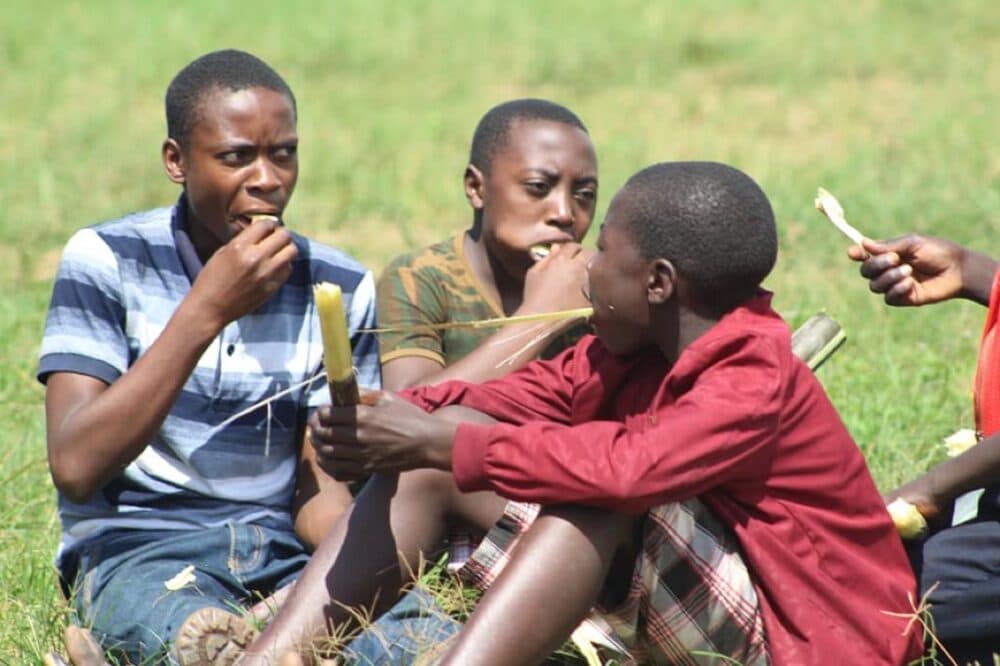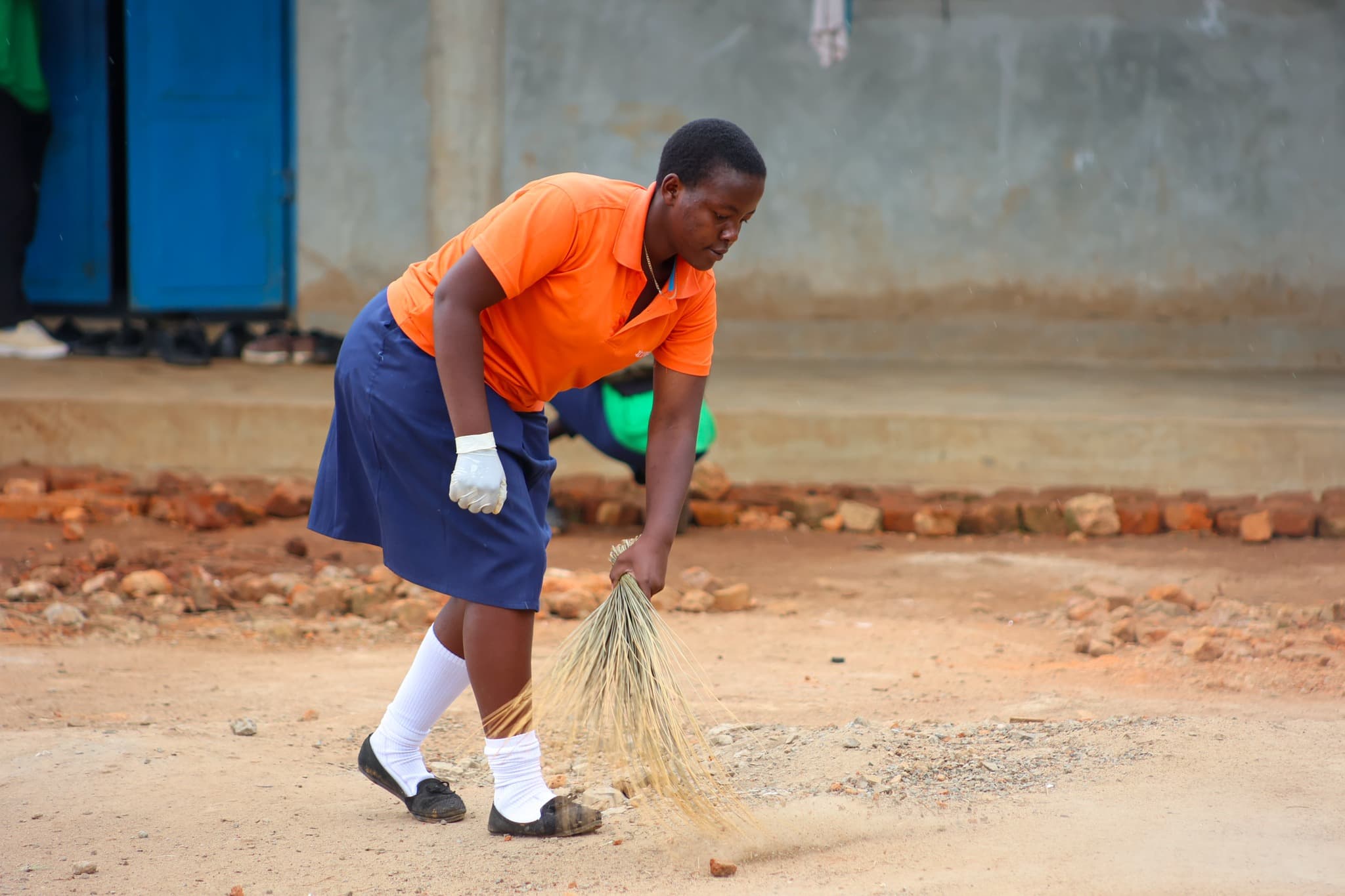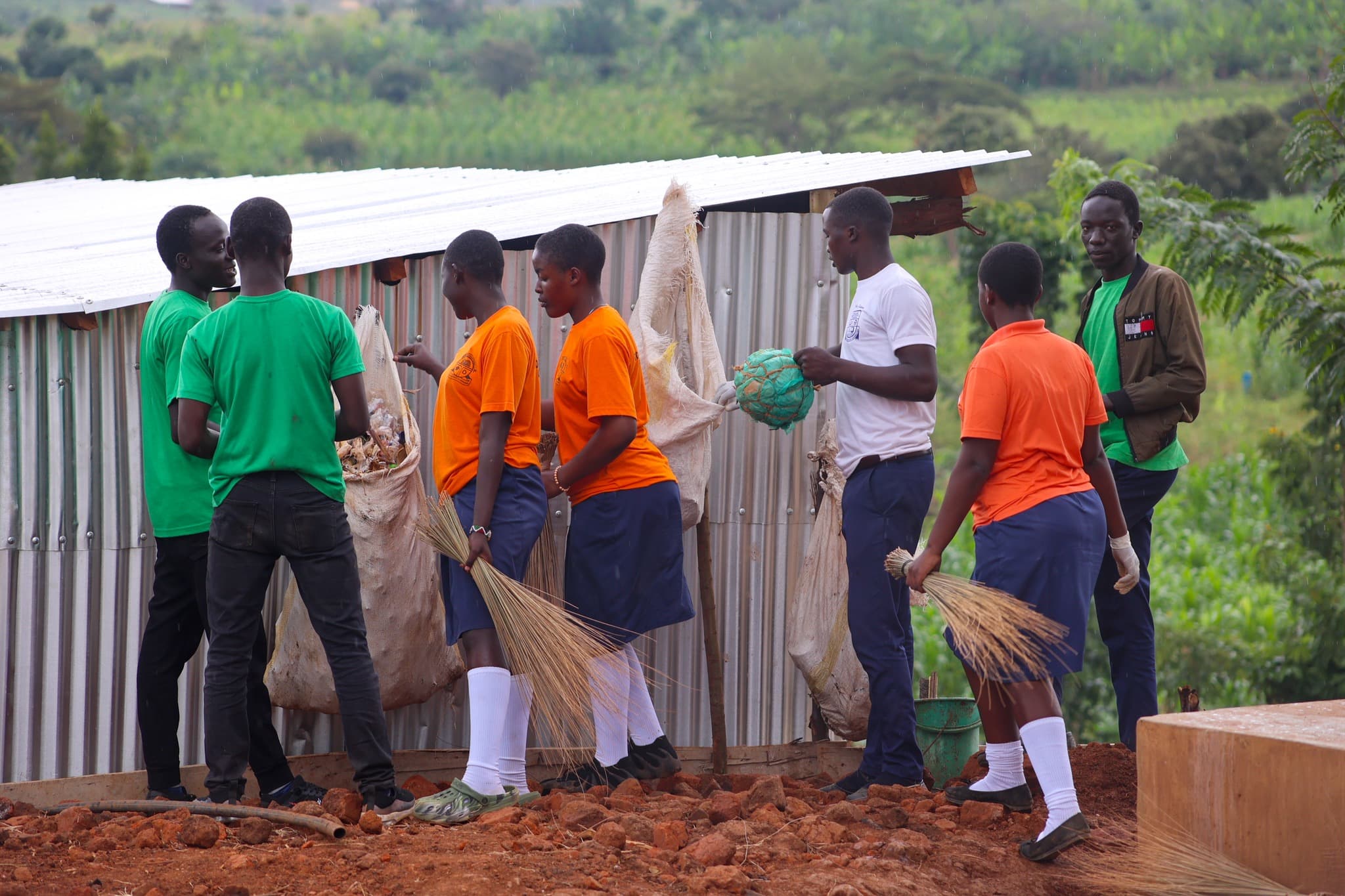I grew up in a refugee camp. People like me deserve a voice in the UN
June 20th, 2023 | √ğΩğ ”∆µ Graduate Institute

By
Bahati Kanyamanza is an former √ğΩğ ”∆µ Global Scholar and an alumnus of √ğΩğ ”∆µ Graduate Institute. He spent about 25 years as a refugee in a Ugandan refugee camp and co-founded CIYOTA, an organization that advocates for refugee youth. This post originally appeared on WBUR's i. It is reprinted here with permission.
When I was 14 years old, I landed in a refugee camp in Uganda, crammed into a house made of mud and donated plastic. Although the camp was dusty and crowded, we believed we had found a safe haven from the war in the Democratic Republic of Congo. Soon, though, we learned that we were trapped in a prison, with no laws to protect us from abusive guards and local tyrants.

For six months, my family labored to grow corn on a tiny plot of land. We saw that crop as our future. My father planned to sell it at a market in the city 60 miles away, where he could get a good price for it. But when he tried to leave the compound with his valuable sacks of corn, the guards blocked his way. As a result, my father had no choice but to “sell” the corn to some Ugandan distributors who confiscated it and paid him nothing.
As a teenager, I used to wonder who would defend us from such injustices. Who would represent us and call out the bullies who abused us? After I finally left the camp in Uganda and moved to the United States, I tried to become that person: I went to work for organizations like Asylum Access that advocates for people who were stuck in camps all around the world. That’s when I discovered the deeper problem.

The United Nations is supposed to be the world’s leading protector and guardian of displaced people. But the members of the governing body of the Office of the United Nations High Commissioner for Refugees are all diplomats—not one member of this group is a refugee or former refugee. In the Palais des Nations, a sprawling complex set among tree-dotted green lawns overlooking the sparkling blue waters of Lake Geneva, these diplomats make decisions that determine the fate of displaced people around the world.
The members of the governing body of the Office of the United Nations High Commissioner for Refugees are all diplomats—not one member of this group is a refugee or former refugee.
Of course, in theory you could argue that the U.N. Refugee Agency does provide a voice for displaced people. For instance, my family was supposed to be represented by the diplomat from our home country, the Democratic Republic of the Congo. But the D.R. Congo is convulsed by war and unable to protect its own inhabitants from starvation and death. It cannot represent the interests of people like me—who fled the country. Furthermore, the diplomats who serve at the U.N. are there to argue on behalf of the citizens who still live and vote in their own country—even when those citizens are crooked businessmen like the corn distributors who robbed my father.
And so, refugees are caught in a Catch-22. How can stateless people be represented by organizations like the United Nations, whose members are nation-states?

When you imagine the indignities of a refugee camp, you may think that it’s the rotten food, or oven-hot houses or ragged clothes that cause people to suffer. But after 17 years in a camp, I can attest that the most soul-destroying depredation was our sense of political nonexistence. I remember how my father risked his life to fight for justice in the camp. After the Ugandan businessmen stole his corn, my father and other refugees staged a roadblock to try to stop their car. My father hoped to attract the attention of camp authorities who would force the swindlers to pay for all the goods that they had stolen. But the guards simply knocked over the roadblocks and waved the car through the gates. In the end, my father passed away in a country that allowed him to be cheated and robbed. Adding to the injustice, he died of malaria — an easily treated disease for those with access to a functioning healthcare system, but fatal for him as a refugee.
Refugees are caught in a Catch-22. How can stateless people be represented by organizations like the United Nations, whose members are nation-states?
It doesn’t have to be this way. Just down the road from the Palais, among the same green trees, are the offices of another U.N. agency, the International Labor Organization. The ILO's governing body includes not only nations, but also workers and employers—because global decisions about labor affect workers and employers deeply and directly.
I believe refugees should share governance of the U.N. Refugee Agency. Just as workers and employers comprise 50 percent of the International Labor Organization's governing body, refugees should comprise 50 percent of the Refugee Agency's executive committee.
The U.N. body that decides my fate should include people like me—people for whom my needs and interests come first, because they, too, have been forcibly displaced from their homelands by war and persecution. There are 31 million of us refugees in the world. We deserve an equal say in how we are treated.
